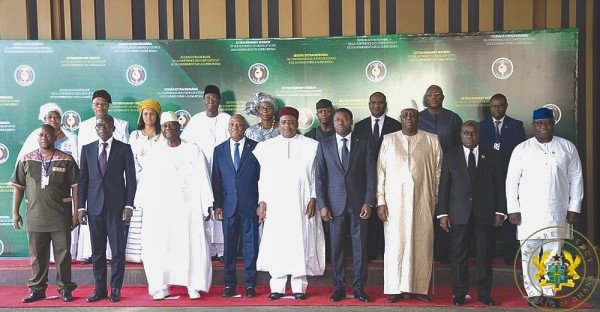 The President of Niger, Mr Mahamadou Issoufou, has called on the international community to support efforts of the Economic Community of West African States (ECOWAS) to ensure peaceful elections in Guinea Bissau this year.
The President of Niger, Mr Mahamadou Issoufou, has called on the international community to support efforts of the Economic Community of West African States (ECOWAS) to ensure peaceful elections in Guinea Bissau this year.
He said the prevailing instability in that country could disrupt the elections which are scheduled for November 24, 2019, and also cause instability in neighbouring countries.
Mr Issoufou, who is also the Chairman of ECOWAS, made the call at the opening of an extraordinary session of Heads of State and Government in Guinea Bissau, which is being attended by
Heads of the 14-member regional bloc in Niamey, the capital of Niger.
President Nana Addo Dankwa Akufo-Addo led the Ghanaian delegation which included the Minister of Foreign Affairs and Regional Integration, Ms Shirley Ayokor Botchwey; and the Minister of National Security, Mr Albert Kan Dapaah.
Also participating in the session to discuss the political situation in Guinea Bissau are leaders of the ECOWAS Commission, including its President, Dr Jean-Claude Kassi Brou.
Summit
The summit will also consider evaluation reports from a High Level Ministerial Committee, headed by the Chairman of the ECOWAS Council of Ministers and the Minister of Foreign Affairs, Cooperation, African Integration and Nigeriens Abroad, Mr Kalla Ankourao, on the political situation in Guinea Bissau and the implementation of decisions at the 55th summit of the ECOWAS
Heads of State and Government in Abuja, Nigeria, on June 29, 2019.
The meeting is also aimed at ensuring peaceful, credible and transparent elections in that country in line with ECOWAS Supplementary Protocol on Democracy and Good Governance of 2001.
Last Monday, the UN Security Council also called for restraint and dialogue to end the political crisis in the West African country.
Power struggle
The President of Guinea Bissau, Mr Jose Mario Vaz, is alleged to have caused the stalemate in the country when he dismissed his Prime Minister, Aristides Gomes, and replaced him with someone from a minority party.
Mr Gomes, however, refused to step down, leading to the prevailing tension in the country ahead of an already delayed presidential election.
ECOWAS has referred to the dismissal of Mr Gomes as ‘illegal’, while the UN Security Council also says it still recognises Mr Gomes as the Prime Minister ‘in charge of conducting the electoral process’.
Guinea Bissau has a history of instability and coups since becoming independent in 1974.
President Vaz, who was elected in 2014, has now completed his five-year term.
As at the time of filing this report, the heads of state had commenced closed-door discussions on the issue and are expected to issue a communique on the way forward for Guinea Bissau.
Source: Graphic Online























